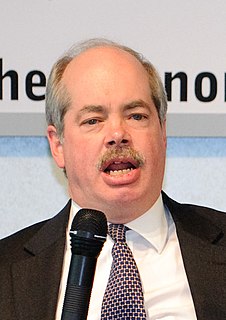A Quote by Frances Beinecke
Safer chemicals and more energy-efficient technologies can provide cooling without severe climate implications. Shifting to these alternatives could avoid the equivalent of 12 times the current annual carbon pollution of the United States by 2050.
Related Quotes
The Environmental Protection Agency's first-ever limits on carbon pollution from power plants will create clean- energy jobs, improve public health, bring greater reliability to our electric power grid, bolster our national security, demonstrate the United States' resolve to combat climate change and maybe even reduce our utility bills.
Climate change, in some regions, has aggravated conflict over scarce land, and could well trigger large-scale migration in the decades ahead. And rising sea levels put at risk the very survival of all small island states. These and other implications for peace and security have implications for the United Nations itself.
Improved energy productivity and renewable energy are both available in abundance—and new policies and technologies are rapidly making them more economically competitive with fossil fuels. In combination, these energy options represent the most robust alternative to the current energy system, capable of providing the diverse array of energy services that a modern economy requires. Given the urgency of the climate problem, that is indeed convenient.
I think when it comes to climate change, the single most important thing in the world is for the United States' Congress to pass an effective bill that will put a price in carbon because if it starts costing something to emit carbon, this will provide an incentive, people do act on the basis to some extent of economic incentives to emit fewer greenhouse gases.
But to truly transform our economy, protect our security, and save our planet from the ravages of climate change, we need to ultimately make clean, renewable energy the profitable kind of energy. So I ask this Congress to send me legislation that places a market-based cap on carbon pollution and drives the production of more renewable energy in America.





































